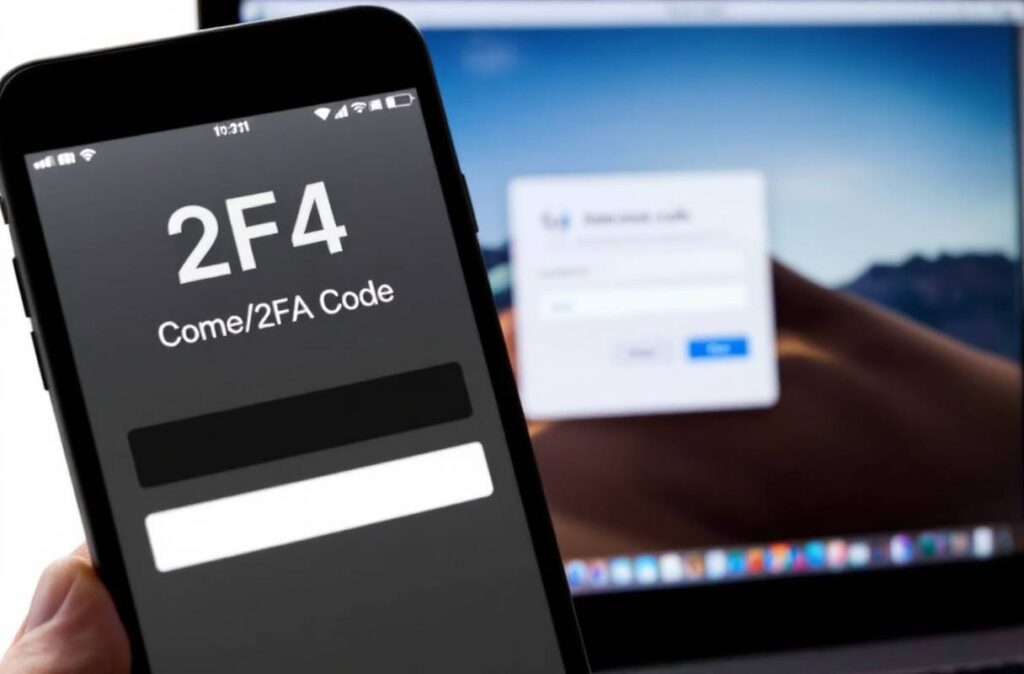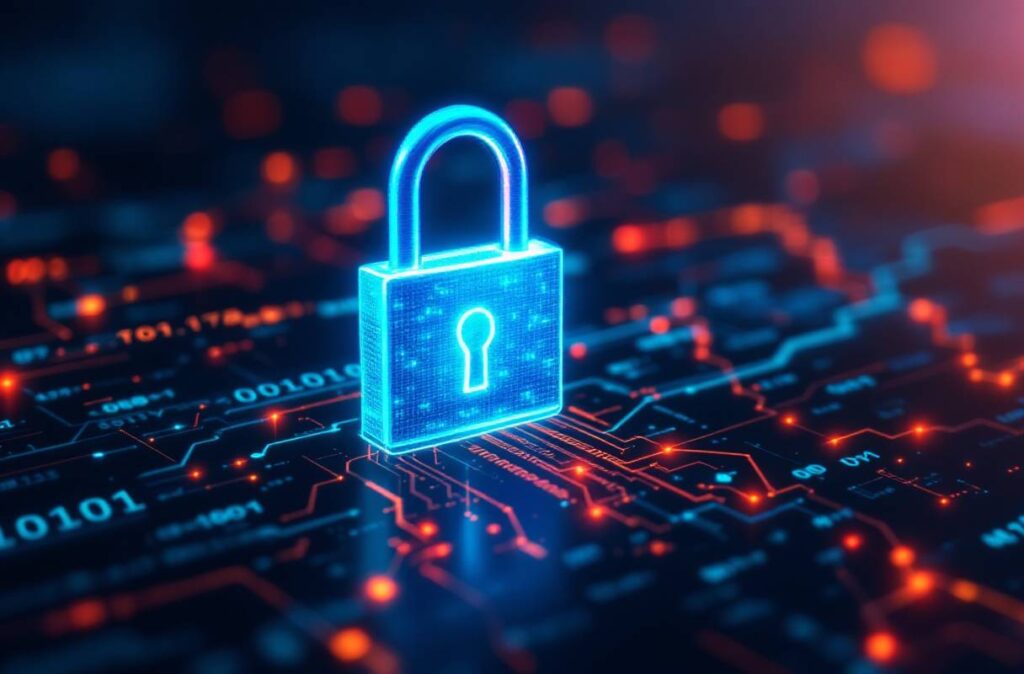In the vast expanse of the internet, the dark web lurks like an unseen underworld—mysterious, shadowy, and teeming with both promise and peril.
Whether you’re a casual browser, a tech enthusiast, or someone concerned about personal security, navigating this hidden corner of cyberspace safely is crucial.
With cyber threats evolving every day, understanding essential dark web safety measures can be your armor against the unseen dangers that threaten your online presence.
Dive into our guide to fortify your digital life and keep your personal information secure from the lurking cyber baddies.
Safeguarding Your Online Presence
Why You Should Care About Dark Web Safety
Imagine the dark web as the back alley of the internet—hidden from view and full of both intrigue and danger. While it can serve good purposes, like protecting the privacy of freedom fighters and reporters, it’s also a favorite haunt for cyber baddies. That’s why keeping an eye on dark web safety is a must to dodge pesky cyber threats.
Everybody from the average Joe surfing the web to IT nerds and worried parents need to get clued up on dark web safety. By putting some safety nets in place and staying savvy about the sneaky threats out there, they can keep their online world and personal info under lock and key. You’ll also find boatloads of tips on staying safe online.
Taking a Closer Look at Dark Web Dangers
Learning the ropes of the dark web means knowing about risks. Dipping your toes in this murky part of the internet can unintentionally open you up to a raft of digital dangers. Here’s the lowdown on the biggies:
- Data Breaches: Bad guys trade in your personal and money stuff like it’s junk bonds, setting you up for identity theft. Heads up on stopping data breaches helps steer clear of this mess.
- Malware and Ransomware: Clicking on dodgy sites might land you some nasty software. Get schooled on keeping ransomers at bay.
- Phishing Scams: Cyber slicksters on the dark web lure you into handing over your precious info. Check out ways to dodge phishing traps.
- Illegal Activities: The dark web’s shady markets might seem exciting but can land you in hot water legally or morally.
Here’s a quick glance at dark web pitfalls and what they could cost you:
| Risk Type | Potential Impact |
|---|---|
| Data Breaches | Identity theft, financial meltdown |
| Malware/Ransomware | Computer headache, data vanishing, extortion |
| Phishing Scams | Bye-bye sensitive info |
| Involvement in Illegality | Legal woes, moral hang-ups |
Knowing these traps lets you play it smart and shore up your digital world. Lock things down by using strong passwords (password help here), turning on two-factor protections, and keeping your software fresh (update guide).
By getting the dark web lowdown and gearing up safety-wise, folks can handle the online universe with more confidence. For top tips on boosting security, check out VPN know-how and best antivirus advice.
Essential Dark Web Safety Measures
Strolling around the wild side of the internet? Well, buckle up, ’cause when it comes to the dark web, caution is your best buddy. Arm yourself with smart safety habits, and you’ll dodge the pitfalls. Here’s how to roll smartly.
Strong Password Practices
Passwords—those quirky little keys to your digital life! Crafting a solid one isn’t just smart; it’s a must if you want to keep your stuff safe. Aim for something only a robot would guess: mix those caps, numbers, and symbols like a digital smoothie.
| Password Sample | Security Level |
|---|---|
| password123 | Laughably Low |
| P@ssw0rd!234 | Decently High |
| XyZ#89aB!mQ | Fort Knox High |
Struggling with memory? A password manager tool can keep everything under lock and key—way better than that post-it note under your keyboard.
Two-Factor Authentication

Ever wish you had a bouncer for your online accounts? That’s what 2FA is all about! It asks for a second ID card—because one is just too easy.
Types of 2FA:
- TXT Code
- Email Holler
- App that won’t quit
Turning on 2FA is like giving your online stuff a VIP room. Read our lowdown on two-factor authentication methods and make sure the bad guys stay out.
Regular Software Updates
Updates are your unseen guardians. They might be annoying, flashing right when you’re deep into a Netflix binge, but oh boy, they’re vital!
| Device | Update Frequency |
|---|---|
| Computer | Monthly |
| Smartphone | Once or Twice a Month |
| Browser | Whenever it Croaks |
Ignoring updates is like leaving your window open for the flies—and the burglars. Keep your tech up-to-date and give cyber creeps the boot. Need specifics? Check out our piece on software update security.
Stick these safety tips in your back pocket while surfing the web. Feeling nerdy? Dive into our guide on online security basics and get a grip on ransomware protection. Keep your digital self sleek and slick!
Protecting Your Data
Keeping your stuff safe online isn’t just about being cautious—it’s about using some street smarts to keep the bad guys out, especially when dealing with the shady corners of the web. Mixing in some tried-and-true tactics like scrambling your data, locking down your Wi-Fi, and steering clear of fishy links can really keep your stash secure.
Data Encryption

Scrambling your info with data encryption is like putting your secrets in a safe only you have the key to. When you encrypt your data, it turns into a secret code waiting to be unlocked with the right password or key. This trick can protect your stuff whether it’s zipping across the web or just sitting on your device.
| Type of Data | Encryption Method | Security Level |
|---|---|---|
| Emails | End-to-End Encryption | Locked Tight |
| Files | AES (Advanced Encryption Standard) | Locked Tight |
| Websites | SSL/TLS (Secure Sockets Layer / Transport Layer Security) | Pretty Secure |
Curious about diving deeper into how this magic works? We’ve got a guide on data encryption basics.
Secure Wi-Fi Connections
If you’re surfing the web at home, a strong Wi-Fi setup is key to keeping snoopers out. Cranking up your Wi-Fi security is like putting a lock on your front door—only the right folks get in. Start by cooking up a tricky password, turning on WPA3, and giving your router the occasional upgrade it deserves.
A few tricks to lock down your Wi-Fi:
- Craft a password that’s like a riddle for your Wi-Fi network
- Flip on WPA3 encryption
- Change up the default SSID (name that pops up when you’re searching for a network)
- Give your router a tech-tune-up from time to time
Want to get more into the nitty-gritty of staying safe online? Check our online security basics.
Avoiding Suspicious Links and Emails
Phishing—it’s trickery in spades! These digital con artists send sneaky messages trying to reel you in to spill your secrets. Dodge the bait by being suspicious of every link and email that lands in your inbox.
Keep your eyes peeled for:
- Weird email addresses that don’t match up
- Links from sketchy strangers
- Hidden URLs by hovering over links before you click
- Messages screaming “Act now!” or poorly written ramblings
For more on dodging these cyber traps, swing by our phishing prevention techniques.
By getting smart about data scrambling, locking down your Wi-Fi, and dodging shady emails, you’re already miles ahead in keeping your digital world safe. For extra peace of mind, check out our guides on two-factor authentication methods and best antivirus software.
Privacy Tips for Internet Users
Keeping your business private on the internet is essential these days. Cyber shenanigans are constantly sprouting new tricks, and skipping basic privacy steps can leave your info wide open for those digital miscreants. Keep reading for some user-friendly advice on shielding your online world.
Limiting Personal Information Online
Ever spilled too much about yourself online? Yeah, not the best idea. Sneaky folks can use this info to snoop into your life. Best to be smart about what you let out into the wild web.
- Stop Oversharing: Keep your personal deets like your full name, home address, or phone digits off social media and unnecessary forms.
- Go Undercover: For accounts that don’t need your real name, why not go by a fun alias or nickname?
- Check and Check Again: Regularly glance at the privacy settings of your accounts to dictate who gets a peek at your stuff. Curious about more? Swing by our article on social media privacy settings.
| Type of Info | What You Should Do |
|---|---|
| Full Name | Share only if absolutely needed |
| Address | Keep it a secret! |
| Phone Number | Stick to trusty sites |
| Birthdate | Keep it under wraps or share sparingly |
Being Cautious with Social Media Sharing
Social media’s like your virtual living room, but it can leak your privacy if you’re not careful. Tips to keep it on the low:
- Who’s Watching?: Set your audience to friends only; no strangers allowed!
- Beware App Permissions: Don’t give too many rights to third-party apps accessing your profile.
- Pause Before Posting: Think twice about sharing pictures or updates—imagine if they ended up in the wrong hands.
Want to beef up your social media privacy game? Peep our advice on phishing prevention techniques to steer clear of sneaky online traps.
For more savvy moves to guard your online space, check out sections like two-factor authentication methods and data encryption basics.
With these tips on your side, you can dodge unwanted attention and keep your online space as private as a secret garden.
Business Security Practices
These days, it’s more important than ever for businesses to keep their cybersecurity game strong to protect crucial company info and safeguard their online turf. We’re diving into a couple of super important aspects of business security: teaching employees about cybersecurity and nailing secure data storage.
Employee Training on Cybersecurity
You know your employees? They’re like the frontline soldiers against cyber baddies. Giving them the lowdown on top-notch cybersecurity practices can seriously cut down on data breaches and other nasty stuff online. Here’s the rundown on what they need to know:
- Catching Phishing: Teach your crew to spot dodgy emails and resist the urge to click on strange links. There’s more about this at phishing prevention techniques.
- Strong Password Game: Push for those tricky passwords and maybe think about a password manager to boost security.
- Two-Factor Authentication (2FA): Preach the gospel of 2FA and how to do it right with two-factor authentication methods.
- Smart Browsing: Tell them to skip shady websites and watch out for sketchy downloads.
Keep the training fresh and frequent so everyone’s up to speed on the latest threats and defenses. Use this handy table to map out your training calendar:
| Training Topic | Frequency | Responsible Department |
|---|---|---|
| Phishing Prevention | Every 3 Months | IT Department |
| Password Security | Twice a Year | HR/IT Tag Team |
| Two-Factor Authentication | Once a Year | IT Department |
| Safe Browsing Practices | Every 6 Months | IT Department |
Secure Data Storage Solutions
Safely storing data is like guarding your business crown jewels. You need solid storage plans to keep bad folks out and your precious data safe. Here’s some stuff to think about:
- Encryption: Lock down data with encryption magic. Dive deeper at data encryption basics.
- Cloud Storage: Go for secure cloud storage that comes with full encryption and audits.
- Backup Routine: Make backups a habit so all your info is safe from loss or hackers.
- Control the Access: Keep sensitive data to those who truly need it, using role-based access rules.
Here’s a quick table of storage solutions and their top perks:
| Storage Solution | Encryption | Regular Audits | Access Controls |
|---|---|---|---|
| On-Premise Servers | Yep | Sure thing | Role Job |
| Cloud Storage | Full Coverage | Absolutely | Role Job |
| External Hard Drives | Maybe | Nope | Physical Only |
| Hybrid Storage (Cloud + Local) | Yep | You bet | Role Job |
By giving cybersecurity training to your crew and setting up rock-solid data storage, your business can seriously up its online safety game. Want more tips on shielding your biz from the bad stuff out there? Check out our article on small business cybersecurity.
Parental Guidance for Online Safety
Parents wear many hats, and keeping kids safe online is a big one. With the cornucopia of internet risks, staying on top of your child’s digital life is essential, especially when it comes to shadowy corners like the dark web.
Keeping Tabs on Kids’ Internet Adventures
Keeping track of what kids are doing online plays a huge part in making sure they’re safe. It’s all about knowing the apps and sites they’re diving into. A whole lot of them out there, so better make sure they’re sticking with the right ones.
Here’s a list of practices that come in handy:
- Parental Controls: Make use of the parental controls available on gadgets and apps to steer clear of unsavory content.
- Chit-Chat Often: Peek at the browsing history and what they’ve been up to online when you get a chance.
- Talk it Out: Make sure your kids know the door’s always open to chat about their online dealings and any red flags they encounter.
| What to Keep an Eye On | Why It Matters |
|---|---|
| Parental Controls | Super Important |
| Check-Ins | Important |
| Open Chats | Can’t Stress Enough |
To get savvy with securing your family’s online digs, check our piece on online security basics.
Schooling Kids on Internet Pitfalls
Schooling the young ones about online hazards is just as big a deal as keeping an eye on their footprint. They should know the sneaky traps and how to dodge them.
Touch on these key points:
- Sneaky Scammers: Get into the nitty-gritty of spotting fishy emails or links. Drill into them not to dish out personal info willy-nilly. Learn more with our phishing prevention techniques.
- Social Media Savvy: Go over why keeping things private and not oversharing could save them hassle on social sites. Our social media privacy settings guide is packed with handy tips.
- Stranger No-Go: Reinforce that befriending unknowns online isn’t a ticket to funland and make sure they report any weird stuff pronto.
- Password Smarts: Stress using strong, one-of-a-kind passwords for all accounts. Trust password manager tools to babysit these passwords for them.
Mix in these watchful strategies and learning bits, and you’ve brewed up a safer online stomping ground for your kids. For a bigger safety net, delve into our write-ups on best antivirus software and data breach prevention.
Arm your children with wisdom and watchfulness to help them roam the web without worry.
Enhanced Security for High-Risk Individuals
For those in careers like journalism and activism, keeping online antics under wraps is no small feat. Dodging the hackers’ peep show requires some slick digital detective work. Here’s how you can keep your confidential stuff away from prying eyes and sneaky fingers.
VPN Usage
A Virtual Private Network (VPN) is like a disguise for your online persona. This gadget routes your online traffic through a scrambled pathway, keeping your identity under wraps. It’s like slipping through the internet incognito, making snoops work extra hard to track you down. Want the lowdown on this tech sorcery? Hop over to our article on vpn explained to see magic in action.
| VPN Perk | What It Does |
|---|---|
| IP Hiding | Conceals your true online address and whereabouts. |
| Data Shield | Encrypts your info, keeping eavesdroppers clueless. |
| Gatekeeper | Lets you slip into geo-blocked sites and services safely. |
Secure Communication Methods
Chatting on the sly is a must if you don’t want unwanted eyes on your conversation. Apps that scramble your messages into gibberish till they reach the right folks—yeah, those are your new best friends. Check out the top dogs in message scrambling with our piece on best encrypted messaging apps.
More stealthy tips include:
- Shun chat on sketchy networks.
- Refresh apps regularly to seal up any cracks.
- Bolster app security with extra authentication layers. See more on two-factor authentication methods.
Safe Browsing Practices
Playing it safe on the web is like locking your virtual front door. Using browsers heavy on the ‘keep your data to yourself’ features is step one. Here’s how to dodge cyber mischief:
- Flick on HTTPS Everywhere: Make sure every site you visit plays fair with your data by using HTTPS.
- Scrub Cookies and Cache: Keep trackers off your trail by regularly clearing browser crumbs.
- Ad Blocker Power: Stop those sketchy ads in their tracks before they give your system unwanted gifts.
- Antivirus Armor: Equip your digital shield by using trustworthy antivirus software. Private investigator more your speed? Our guide on the best antivirus software spills the beans.
- Dodge Phishing Traps: Look before you click. Suspect links often lead to digital snakes. Our phishing prevention techniques will clue you in on staying scam-free.
Tackling these security tactics equips you for the digital battlefield, helping you sail past current and upcoming security threats. Stay sharp, as the cyber landscape shifts faster than your latest favorite app’s updates. Need an intro course? Check out our primer on online security basics.
Conclusion
Navigating the dark web doesn’t have to be a gamble with your personal and professional security. By understanding the inherent dangers and implementing robust safety measures—such as strong passwords, two-factor authentication, and regular software updates—you can shield your online presence from the myriad of cyber threats lurking in the shadows.
Whether you’re safeguarding your family, fortifying your business, or protecting your own sensitive information, adopting these essential dark web safety practices will empower you to traverse the digital landscape with confidence and peace of mind. Stay informed, stay secure, and take control of your online world today.
Resources
FAQs
What is the dark web?
The dark web is a hidden part of the internet not indexed by search engines, often associated with anonymity and both legitimate and illicit activities.
Why is dark web safety important for everyone?
Dark web safety is crucial to protect personal information from cyber threats like identity theft, malware, and phishing scams that can affect anyone online.
How can I create a strong password?
A strong password combines uppercase and lowercase letters, numbers, and symbols, and is unique to each account to prevent unauthorized access.
What is two-factor authentication (2FA) and why should I use it?
Two-factor authentication adds an extra layer of security by requiring a second form of verification, making it harder for attackers to access your accounts.
How does a VPN enhance my online security?
A VPN encrypts your internet connection, hides your IP address, and protects your data from being intercepted by cybercriminals, enhancing your online privacy and security.


















